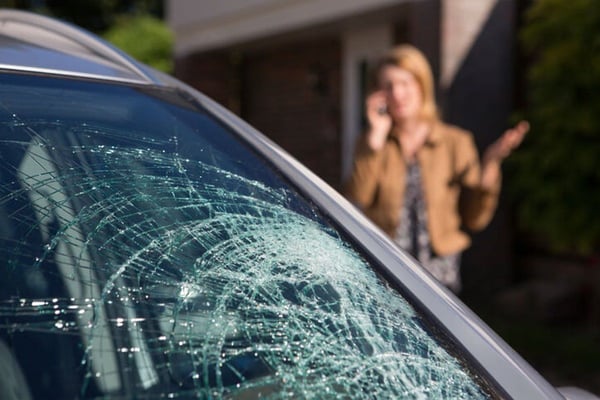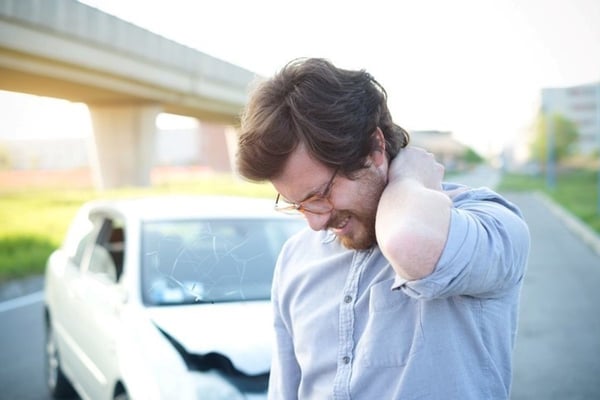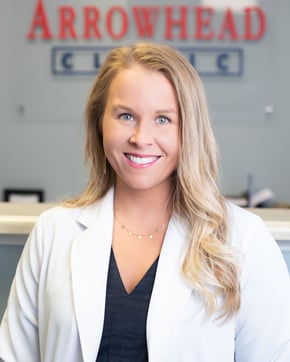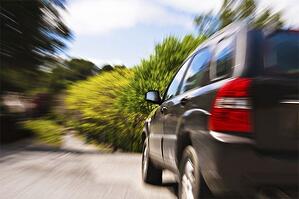Key Takeaways:
- Perception of Time in Crises: The sensation of time slowing down during a car accident is a psychological effect that enhances the ability to react in the moment, increasing the chances of making safer decisions during a crisis.
- Neurological Basis for Time Dilation: This phenomenon, rooted in our evolutionary biology, involves heightened cognitive processing that allows more detailed perception and memory encoding in high-stress situations, making events appear to last longer than they actually do.
- Seek Professional Care: After experiencing a car accident, immediate medical assessment and treatment are crucial. Arrowhead Clinic offers expert chiropractic care and legal referral services to aid in recovery and ensure appropriate compensation.
Have you ever felt like time slowed down during a crisis?
Imagine driving on a slick road; as you turn a corner, your rear tires skid.
In that critical moment, as you're poised to correct the skid by adjusting the steering wheel to avoid an accident and potential soft tissue injuries, everything seems to move in slow motion.
This phenomenon isn't just your imagination.
Many individuals report experiencing this slow-motion effect during auto accidents, describing how a brief moment feels extended, giving them a chance to react.
At Arrowhead Clinic, numerous patients recount similar experiences following motor vehicle accidents.
This article delves into why accidents and other traumatic events often feel like they unfold in slow motion, exploring the internal processes and perceptual changes that occur in such dangerous situations.
Table of Contents
- The Fight and Flight Response
- It Comes From Our Ancestors
- Time Slowing
- What Should You Do After A Car Accident?
- Contact The Arrowhead Clinic Today
The Fight and Flight Response
Many people report experiencing events in slow motion during high-stress situations like car accidents.
An analysis of numerous accident reports found that 71% of individuals perceived time as stretching, with moments seeming to elongate.
This perception of extended time can be attributed to the body's fight or flight response.
This critical survival mechanism heightens bodily and mental alertness.
In these dire moments, our bodies prepare either to confront the danger or flee, which necessitates rapid internal processing.
Researchers suggest that our cognitive and perceptual processes accelerate during this heightened state of arousal.
This internal speed-up creates a stark contrast with the external world, making it appear as if time is slowing down.
This heightened awareness is not just a quirk of the mind; it's an evolutionary advantage that improves our chances of survival.
By perceiving events more slowly, we can absorb more details about our surroundings and react more precisely to imminent threats.
The experience of time dilation allows for a more deliberate assessment of the situation, enabling quicker decisions on maneuvering a vehicle safely or avoiding hazards.
This is why so many people recall accidents in slow motion.
Time appears to slow down during crises, influencing the outcome of life-threatening events.

It Comes From Our Ancestors
Our perception of time slowing down during a car accident may very well be a legacy from our ancestors, who faced constant threats from their environment.
This neurological or psychological trait, developed as an evolutionary adaptation, significantly enhanced their survival prospects.
By perceiving time more slowly, they had a crucial advantage: more time to assess threats and respond accordingly, whether evading a predator or reacting to other dangers.
This time-slowing effect remains with us today as a protective mechanism.
In modern times, when we experience a traumatic event such as a motor vehicle accident, this ancestral trait kicks in.
It amplifies our senses and cognitive processes, giving us the illusion of having ample time to maneuver away from an impending collision or to brace for impact, thereby potentially reducing the severity of injuries.
This evolutionary interpretation helps explain why our sense of time can dramatically alter during intense, life-threatening situations, such as navigating a heavy vehicle accident or reacting to a reckless driver.
This adaptation allows us to perform what might normally be split-second reactions with greater precision and effectiveness.
Understanding this phenomenon as a means of survival helps us realize that our responses in such crisis situations are not random.
Instead, deeply ingrained protective responses have evolved over millennia to increase our chances of survival in dangerous situations.
Time Slowing
The phenomenon of time slowing down during critical moments could also be linked to our brain's enhanced capacity for information processing under stress.
This increased mental activity allows us to absorb more details about our surroundings, which can make the experience of time seem extended.
This concept suggests that the slow-motion effect is more about recollection than immediate perception, as studied by neuroscientists.
They propose that during intense situations, our brains create a richer encoding of memories, making a salient event feel like it lasted longer when we recall it.
Despite these scientific insights, it often feels undeniably real and immediate for anyone who has directly experienced this alteration in time perception, not just a retrospective impression.
This subjective time dilation is not merely an illusion of memory but appears to be a real-time expansion, enhancing our ability to react to crises.
It provides the sensation of having more time to assess the situation, make decisions, and react.
This is and has been crucial for survival, whether it's avoiding a head-on collision or responding to sudden movements of a heavier vehicle or a negligent driver.
This unique cognitive response to heightened stress aids in survival by allowing more time for crucial reactions and underscores the complex interplay between our perceptual and recollective systems in shaping our experiences of time during traumatic events.

What Should You Do After A Car Accident?
Once the eerie slow-motion sensation dissipates and time begins to normalize, you must take several essential actions to ensure safety, legality, and preparedness after your car accident.
Check for Injuries
Assessing yourself and others for injuries right after the accident is vital.
Call 911 immediately to bring medical help and law enforcement to the scene if anyone is hurt.
Even for minor incidents where injuries aren't apparent, a police report can be invaluable.
An accident report is an official record that can greatly support your claim with the insurance company.
Move to a Safer Area
If the accident is minor and the vehicles are operable, safely move them to the side of the road or a nearby safe location.
This is crucial to prevent further accidents and ensure the safety of all passengers and drivers involved.
If you have safety devices like flares or reflective emergency triangles, use them to alert other drivers.
Evaluate the scene for potential hazards such as fuel leaks or fire risks and ensure everyone is safely distanced from such dangers.
Call the Police
Regardless of the accident's severity, it's essential to have a police report.
The report provides an unbiased third-party perspective on the accident, which is crucial when dealing with insurance claims and potential legal issues.
Ensure that you do not negotiate with the other driver about whether or not to call the police; it is always in your best interest to have official documentation.
Take Down Driver and Witness Information
While waiting for the police, exchange information with the other driver or drivers involved in the accident.
This includes drivers' names, addresses, phone numbers, insurance company details, policy numbers, and driver's license numbers.
You should also gather information about the vehicle owner, including their contact details, if different from the driver.
If there are witnesses, their input could be invaluable to corroborate your version of events. Take their names and contact information as well.
Take Pictures and Notes
Document every aspect of the accident scene with as much detail as possible.
Photograph all vehicles involved from several angles, showcasing the damage and overall positioning of cars post-accident.
Include shots of the road layout, any skid marks, road signs, and traffic signals.
Environmental conditions such as weather and lighting can also affect the outcome of accident claims, so document these as well.
Write down everything you remember leading up to the accident, including the speeds you believe were involved, the actions of the other driver, and your immediate reaction to the accident.
Seek Medical Attention Right Away
After securing the scene and gathering all necessary information, seek medical attention, even if no injuries are evident.
Some injuries, like whiplash or internal bruising, aren't immediately noticeable but can cause significant issues later.
Visiting a healthcare provider such as a chiropractor specialized in car accident injuries is crucial.
They can assess and document any injuries, which is vital for insurance claims and potential legal actions.
Prompt, detailed actions ensure everyone’s safety, protect your rights and provide the necessary documentation for legal and insurance purposes.
While the accident may have felt elongated due to the perception of time slowing, the reality is that decisive, quick actions following the incident are crucial to managing the aftermath effectively.
Contact The Arrowhead Clinic Today
If you’ve been involved in an auto accident and you experience back pain or other car accident injuries once time has returned to normal, it’s crucial to seek professional care as soon as possible.
At Arrowhead Clinic, our chiropractors have nearly 40 years of experience providing expert care to the community.
They possess the necessary skills to help you recover swiftly from your injuries and can facilitate connections with experienced personal injury attorneys to review your accident claim.
Your road to recovery doesn’t have to feel like it’s happening in slow motion. Arrowhead Clinic offers free consultations to ensure you receive the care and compensation you deserve without delay.
By choosing our expert team, you’re not just getting treatment; you’re taking the first step towards optimal recovery and securing your legal rights.
Click the button below to schedule your free consultation today and start your journey back to health with one of the most trusted names in accident care.



